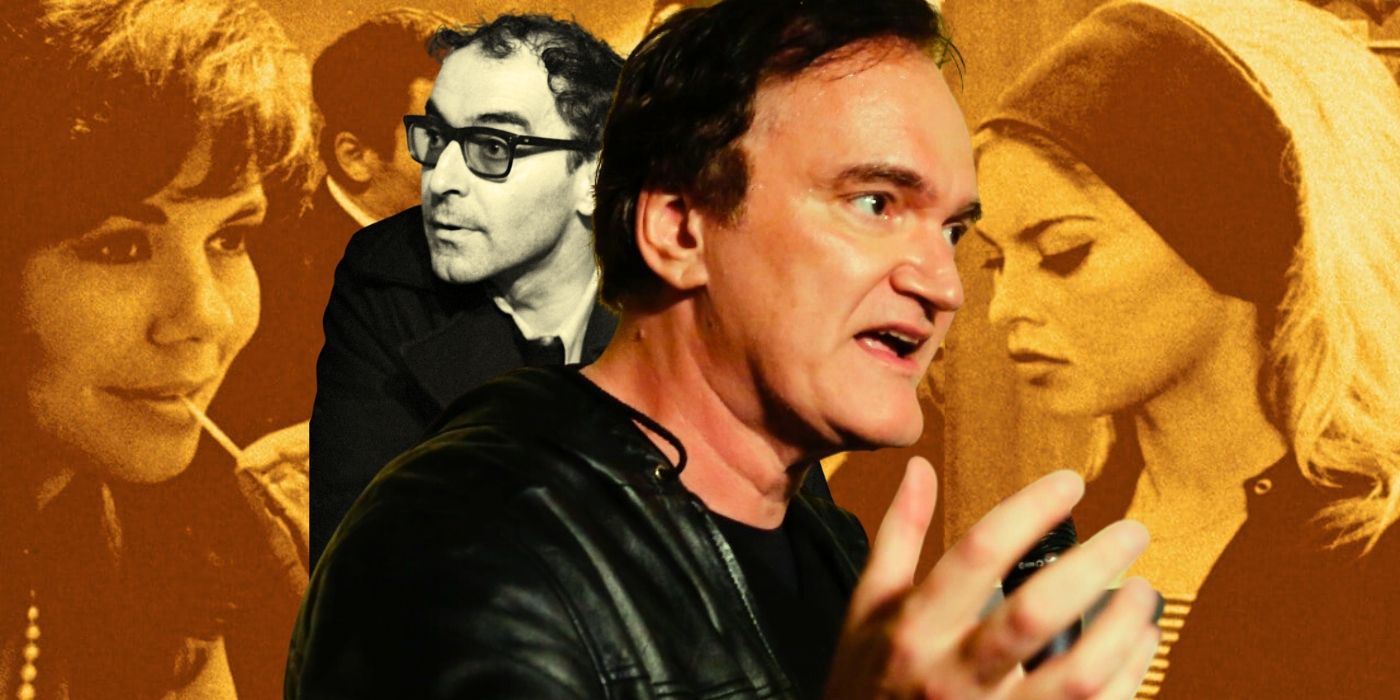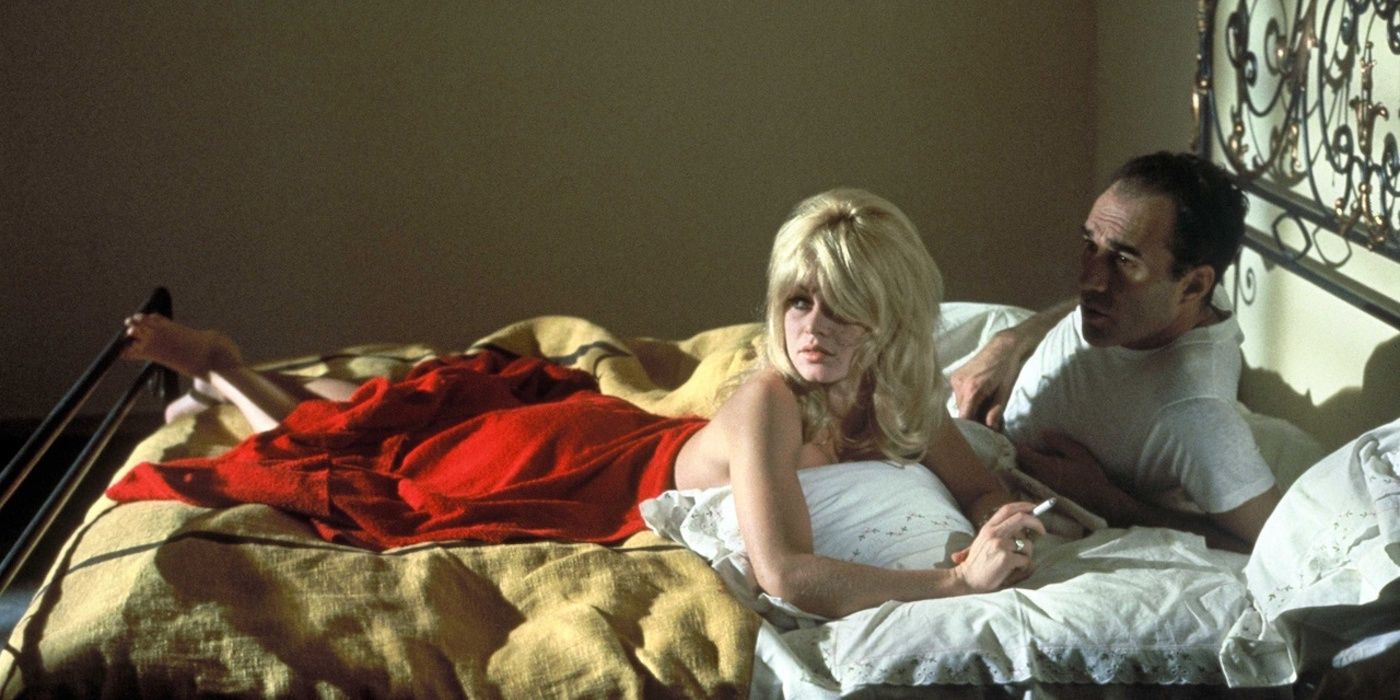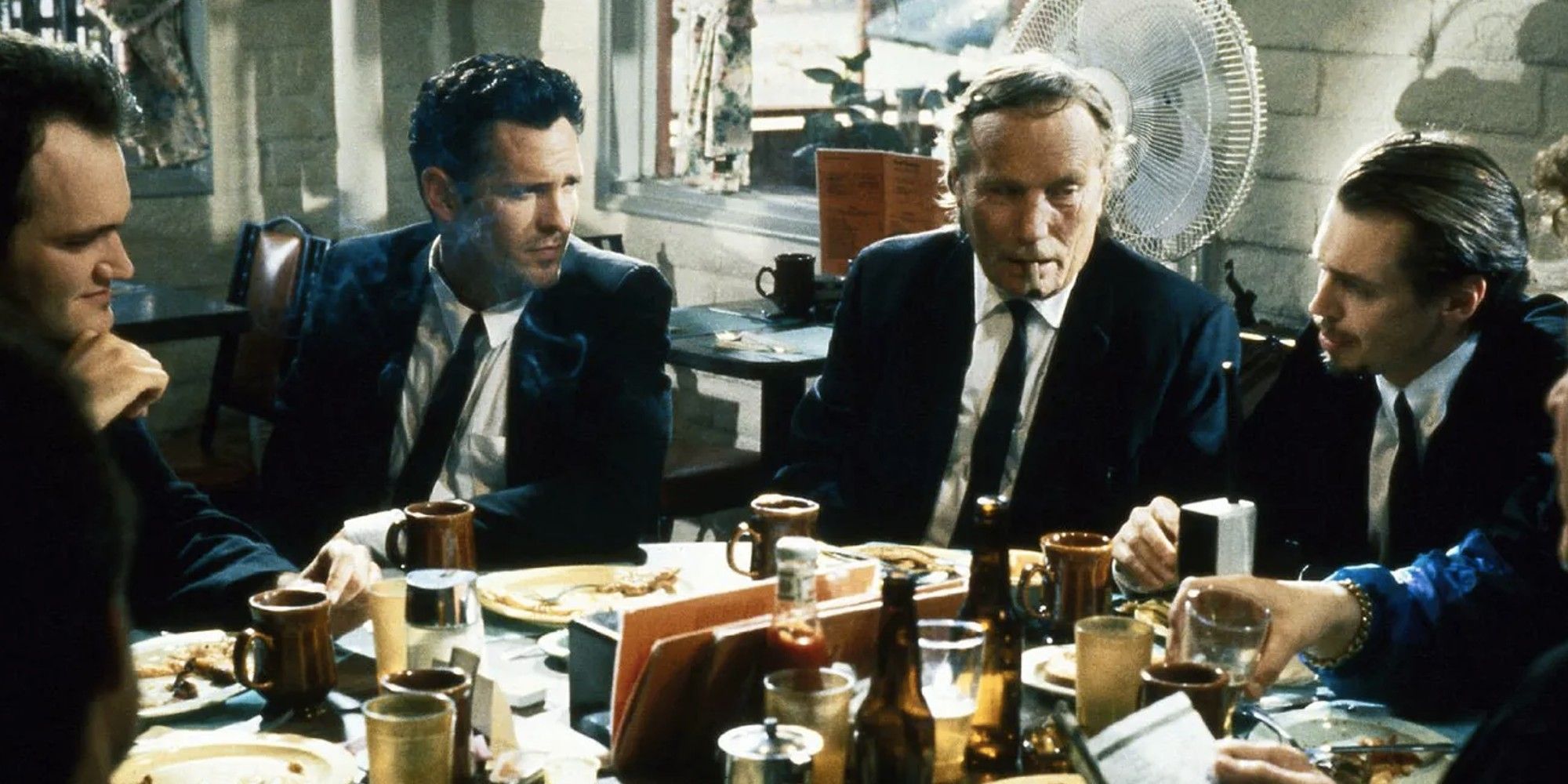We often think of Hollywood as one big happy family. An ever-expanding circle of artists who work together, marry each other, share neighborhoods, and attend lavish parties. And while sometimes that's true, there are always the juicy pockets of Hollywood that feud and compete. Therein lies the odd sparing between legendary filmmakers Jean-Luc Godard and Quentin Tarantino. It was a slow and gradual descent, with Godard being one of Tarantino's biggest inspirations in his early career, until Godard publicly declared his disinterest in the director and summarized the up-and-coming talent as 'null'. Some have commented that Hollywood needs to get better at dealing with criticism, and others believe there's a difference between criticism and bitterness. So what made Godard's disinterest in Tarantino so defining that the Pulp Fiction mastermind cannot let it go? And if anyone, who is the real sore loser in all of this?
How Did Jean-Luc Goddard and Quentin Tarantino Get Their Starts in Film?
Jean-Luc Godard, born in 1930 in Paris, was renowned as one of the most influential and groundbreaking filmmakers of his time. His style and approach to screen arts separated him from the growing work that centered on classic techniques and Americana. Godard's films brought a new sense of worldliness, quirk, and intrigue to global film industries and particularly Hollywood. Arguably, without Godard, the artistic and expansive extent of our current films and television shows would never have happened. And before 2013, director Quentin Tarantino would have agreed. Born over thirty years after the French filmmaker in Tennessee, USA, Tarantino spent his teen years developing his interest and talent for screenwriting and eventually burst onto the California scene with his breakthrough film Reservoir Dogs in 1992, which remains one of his most beloved projects to date. Having grown up in the post-modern age of film, Tarantino became interested in many filmmakers, including Godard.
Quentin Tarantino expressed his admiration for the French-Swiss director openly for years, once stating in an interview for Film Comment in 1994 that Jean-Luc Godard was for film as Bob Dylan was for music — revolutionary. The Once Upon A Time In Hollywood director found Godard's works, such as Breathless, Contempt, and Pierrot Le Fou, to be liberating films because the style commented and analyzed itself. This introspective technique of Godard's is something Tarantino workshopped for himself, and while the two artists had their own distinct footprints, it's clear that the influence of Godard on Tarantino breathed a sense of inspiration in some of his earlier works. This respect for Godard even extended to Tarantino's production company, which he named after Godard's 1964 film Bande a part. The praise and positivity that Tarantino expressed for Godard went unpicked for a time until Godard decided to pick.
Tarantino vs Godard: Who Said What?
The first comment Godard made back towards Tarantino was in a 2004 interview for Epoca Magazine, whereby the director likened Tarantino to a dishonest child and that the director's work was null. A cold way to describe anyone's craft, let alone the work of a talented artist who had spent a career supporting and adoring his films. From this point on, Tarantino began to sour, and understandably so. In 2013 Tarantino made his turnaround public when he openly stated he "'was not really a big fan of Godard anymore. I think Godard is like Frank Franzetta... You start drawing like him, and then you outgrow. I think that's what Godard was like for me'". This comment lies in stark contrast to Tarantino's previous convictions of praise, whereby he uses the metaphor of the classic comic book artist Franzetta to quietly comment on Godard's career being outdated, with Franzetta's career having taken place through the mid-20th century, just like Godard.
Godard also felt inclined to ridicule Tarantino for naming his production company after his film, demeaning this move because Godard viewed Bande a Part as one of his worst films. Shortly after his passing in September 2022, actress Molly Ringwald penned an article for the New Yorker discussing her long-time friendship with Godard, in which more of the French-Swiss director's disdain for Tarantino was revealed. Ringwald wrote that Godard called Pulp Fiction not authentic around the time of its release and that the two artists had agreed other more alternative films at the time bared more relevance and value over Tarantino's work. Pulp Fiction is still revered as both one of Tarantino's best works and one of the most iconic films of the last few decades, a feat not easy to achieve. So, the disapproval of one such as Godard stands out within a sea of acceptance and awards.
So, Why Can't Tarantino Stop Talking About It?
If you were to look at this discourse between Godard and Tarantino through a telescope, it would seem like a pretty big deal. Remove the telescope, and you'll find that directors are like this with each other a lot. Godard and Tarantino have each made their fair share of digs at each other and various directors and filmmakers around them. Godard famously didn't care much for most of Martin Scorsese's career. In that same vein, Tarantino has attacked David Lynch and made comments about Stanley Kubrick and Oliver Stone. Across all these back-and-forth style commentaries of directors and their work, the comments streaming from Godard and Tarantino often center around how the styles of others are inauthentic, underwhelming, or hypocritical. As an audience to these artists, their work, and their opinions, we could ask why Tarantino can't stop talking about Godard and wind up asking why Godard couldn't stop talking about Tarantino. Or why Tarantino dislikes Kubrick, and why Godard disliked some of Scorsese's best films, and so on. The rabbit hole would be endless.
Maybe the biggest reason why the two directors had a thing for talking about each other was a duality between how similar and how different they are. Both Godard and Tarantino were unique, revolutionary, and big. Their art stands out, and their careers were built off of hard work and dedication to their own style. Godard achieved new heights across filmmaking, and since his recent passing has left us with a lifetime's worth of art to be inspired and moved from. Tarantino continues to make waves and blow away his audiences and is arguably one of the best directors Hollywood has.
And on the other hand, the two artists had stark qualities about them that make them so captivating. A surface-level answer to why Tarantino changed his opinion on Godard would be that Tarantino was bitter and embarrassed and that his comments were made out of spite as if Tarantino and Godard were sparring school boys. Yet, a more explored response would be that directors, artists, and professionals from all industries comment on each other's work all the time and that competitive criticism like this can be both mean and also a sign of commitment to the craft. Maybe Godard and Tarantino were just playing the game, the same way lawyers and doctors do. Except for this time they had fans and theorists alike trying to decode every word. After all, everyone has their own tastes, especially the visionaries who brought us Masculin Feminin and Inglourious Basterds.
The winds of change and disparaging comments that brought us the discourse between Godard and Tarantino leave us with the understanding that art not only imitates life but also conjures competition. Despite the sourness between the two artists, a lot of brilliance remains. Hollywood isn't kind (spoiler alert), and on the path of success and praise comes the platform to pass judgment in front of those willing to listen. Both directors built impressive careers and have inspired millions around the world. The impact their work has had on the film industry alone is extensive, so it's no wonder two art powerhouses had plenty to say of each other. Overall, Tarantino spoke about Godard similarly to how he speaks about many of his peers, the same way Godard did, and the same way many others did. That's show business! The lesson learned is this — watch these movies and decide for yourself because that's exactly what Godard and Tarantino did



